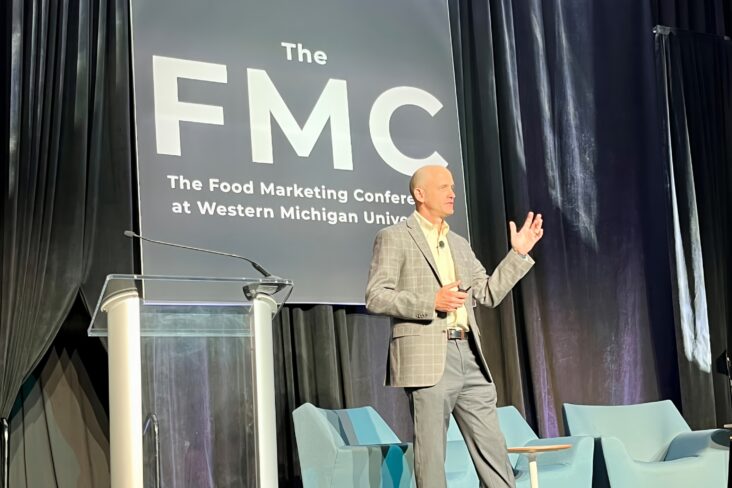These aren’t your dad’s white-labeled generics.
After posting 5.3% sales growth in 2023, nearly doubling that of national brands, private brands are on a torrid run.
And with retailers showing an increased appetite to build out their private-brand programs and develop products differentiated from national brand competitors, the segment shows no signs of slowing down.
With 92% of consumers reporting that they trust private brands as much or more than national brands, private brands are becoming powerhouses on their own, offering quality and innovation even greater than their value proposition.
“This is a true testament to how far we have come, and it validates our role as a solution-provider at shelf for consumers of all types,” said Michael Taylor, chief operating officer at Advantage Solutions, this week at Western Michigan University’s Food Marketing Conference. “We’ve come a long way from basic items whose sole job was to be cheaper at shelf.”
Taylor, who oversees Daymon, the leading private brand agency, said that as private brands continue to capture more consumer attention, retailers need to focus on four key strategies to ensure long-term, sustainable growth for their private-brand portfolio.
Innovate strategically. As much as 98% of national brand product assortment is identical across competitive retailers, so “private brands are critical in the race for differentiation and store choice.”
How to achieve differentiation? Innovation. With some 78% of consumers saying they seek out new food and beverage flavors and trends, innovation is “the key to diversifying any brand portfolio and unlocking brand relevancy,” Taylor said.
That includes exploring new and unique flavor varieties, occasion-ready packaging and leaning into sustainability with eco-conscious packaging and ingredients.
Play across pricing tiers and categories. This is all about moving beyond attempts to replicate the national brand equivalent at a lower price.
“Today’s private brands are not defined against what a national brand is doing. They have their own brand definition and value proposition,” Taylor said.
Successful programs elevate the baseline of what’s expected from a private brand by offering products with unique flavor combinations, clean labels without artificial flavors or colors and premium attributes that command higher, premium pricing.
Fully support the private brand program with omnichannel marketing. When competing in categories against national brands backed by powerful marketing budgets, private brands need marketing support.
“You can’t pull off a ‘launch and leave it’ strategy and expect long-term success or growth,” Taylor said. “As private brands have evolved into true consumer-centric brands, it’s critical that retailers support them with focused campaigns across channels, including e-commerce, social media and traditional marketing.”
Create and build off a strong foundation. Retailers can’t expect to throw out a new innovation under their private brand without having a basic foundation in place. That includes a strong brand foundation, consistent quality and testing, ownable packaging and design and a competitive pricing strategy.
In other words, if a private brand’s baseline products don’t deliver, branching off with innovation is a fool’s errand.
“While it might be boring compared to cool, trending items, I can’t overstate the importance of doing all of this from a strong foundation,” Taylor said. “Before you do anything, you have to deliver on consumers’ baseline expectations to ensure they have a consistent experience across the store and across the brand portfolio.”




